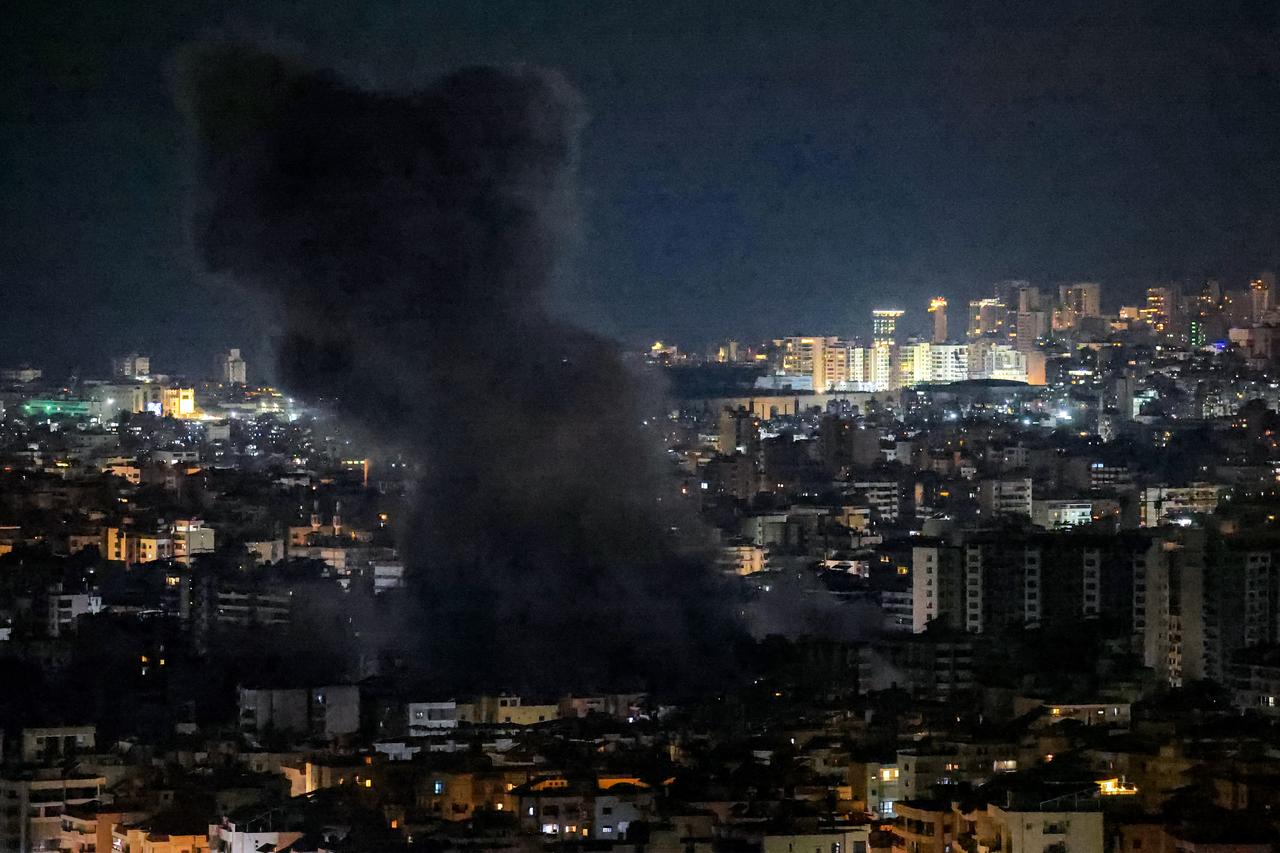
Southern Beirut was shaken by massive explosions late Thursday following a series of Israeli airstrikes, according to reports from Lebanon’s state-run media.
Plumes of smoke were seen billowing from the Lebanese capital, shortly after huge numbers of people had fled the area, clogging the roads with traffic.
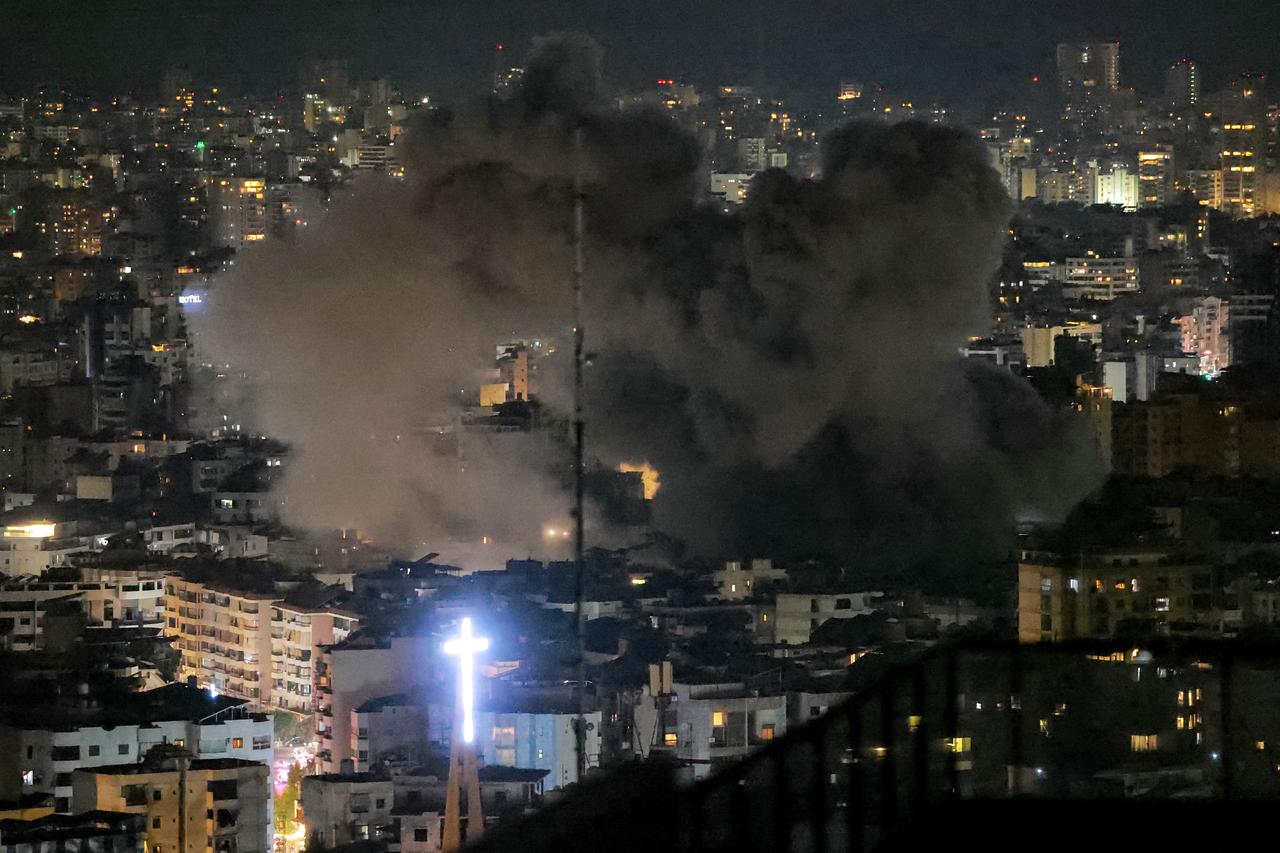
The strikes came just hours after the Israeli military issued evacuation warnings to residents in several neighborhoods of the Lebanese capital, citing proximity to alleged Hezbollah facilities..
"The IDF (military) is currently striking terror targets of the Hezbollah aerial unit," the Israeli military posted on Telegram.
According to the statement, 8 buildings across 4 locations in Beirut’s southern suburbs were struck. These areas include Hades, Hureyk, and Burj al-Barajneh in the Dahiye district, a Hezbollah stronghold south of the capital."
The strikes were the first to hit the capital’s outskirts in more than a month and represent the fourth such operation since a U.S.-brokered ceasefire agreement was signed on November 27, 2024, following a major conflict between Israel and Hezbollah..
The Israeli military claimed that Hezbollah is working to produce “thousands of drones under the guidance and financing of Iranian terrorist groups.” In its official statement, the army described Hezbollah’s drone program as a core component of the group’s military strategy for future conflicts. Military spokesperson Avichay Adraee also posted a map on social media identifying four buildings in Beirut’s southern suburbs allegedly tied to drone production, urging the evacuation of surrounding areas for safety.
The statement further accused Hezbollah of violating ceasefire terms, saying, “Following Hezbollah’s extensive use of UAVs as a central component of its terrorist attacks on the State of Israel, the organization is now working to expand drone production for the next war.” The military called this “a blatant violation of the understandings between Israel and Lebanon.”
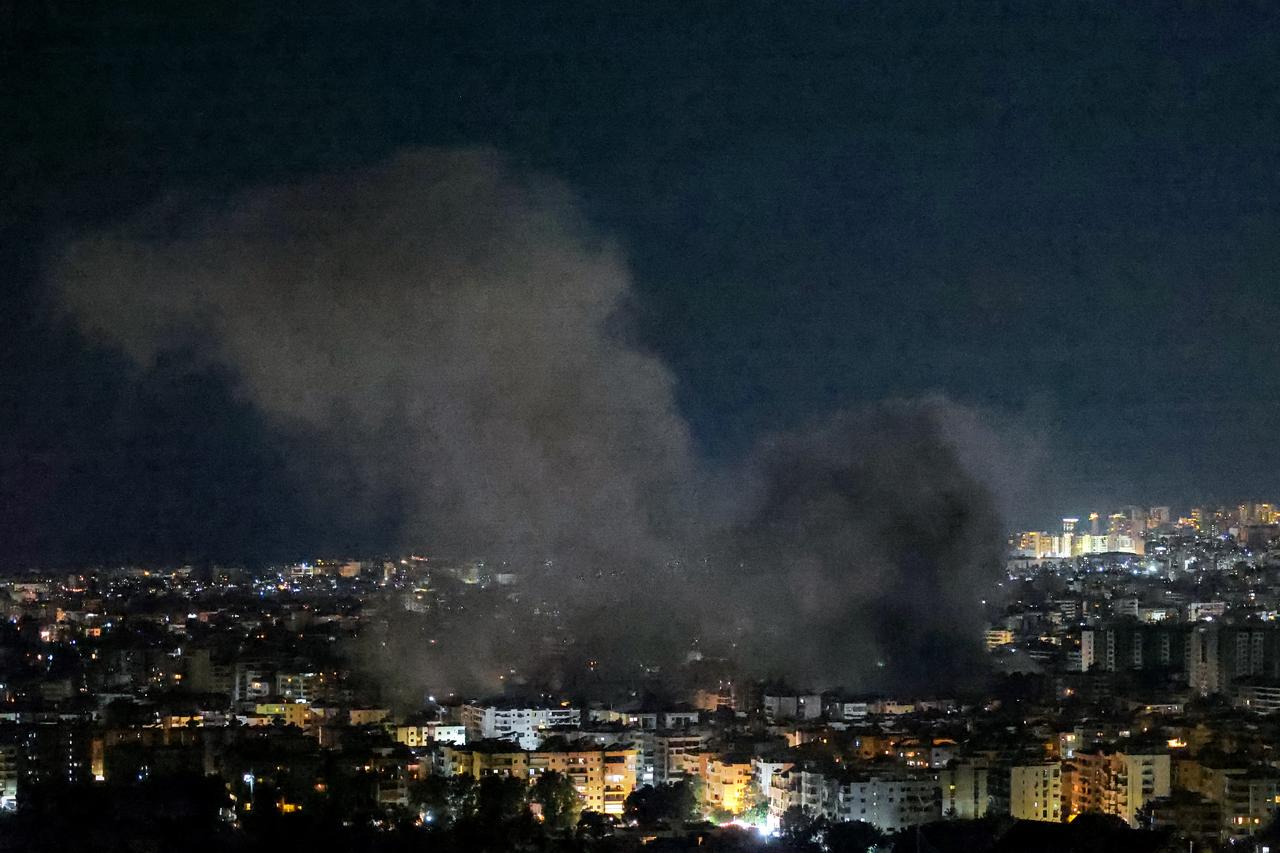
Following its strikes on southern Beirut, the Israeli military has announced it will also target the town of Ayn Qana in southern Lebanon’s Nabatieh Governorate.
Israeli army spokesperson Avichay Adraee shared a post on his X account, publishing a map that marks several buildings in Ayn Qana, which is located south of the capital, Beirut.
Adraee claimed the identified buildings in Ayn Qana are facilities belonging to Hezbollah and called for the area to be evacuated ahead of planned airstrikes.
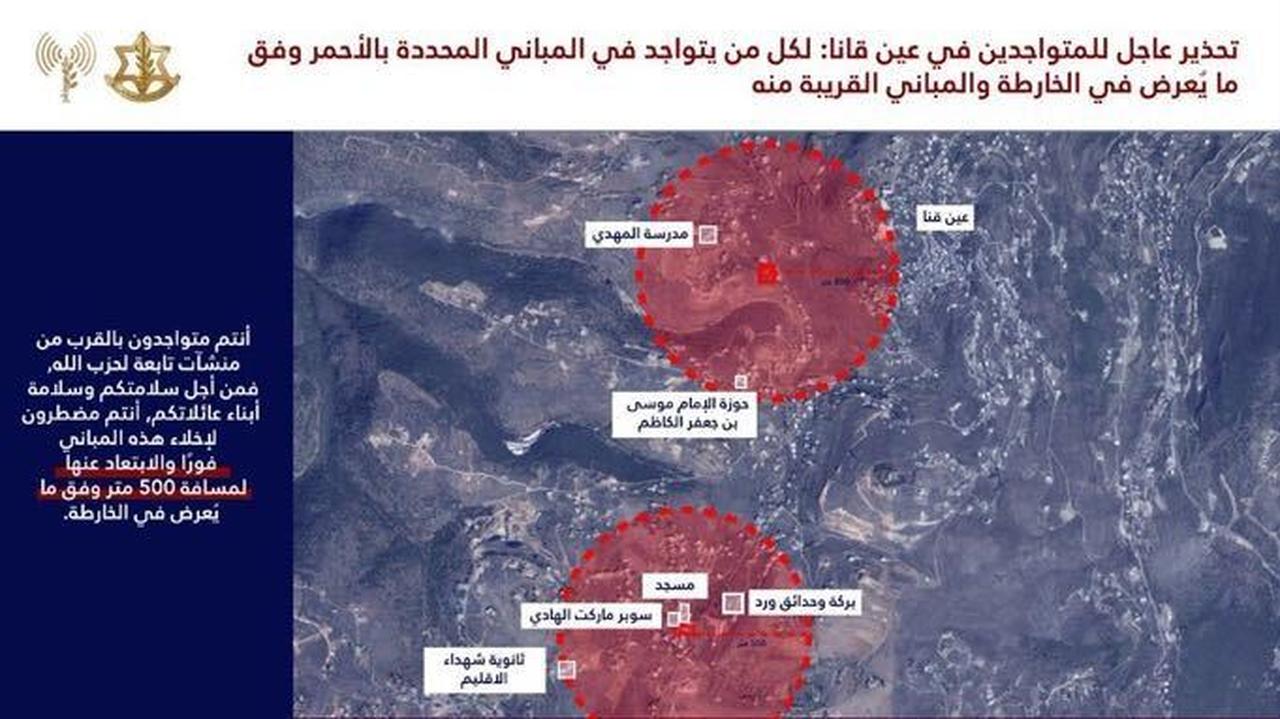
The United Nations Special Coordinator for Lebanon wrote on X that the latest strikes “generated renewed panic and fear” and called for “a halt to any actions that could further undermine the cessation of hostilities.” The statement emphasized that “established mechanisms and diplomatic instruments are at the disposal of all sides to address disputes or threats, and to prevent unnecessary and dangerous escalation.”
Lebanon’s President Joseph Aoun issued a statement condemning what he described as “Israeli aggression” and a “flagrant violation” of the November 27 ceasefire, particularly “on the eve of a sacred religious festival,” referring to the Muslim holiday Eid al-Adha. He added that the attacks were “irrefutable proof of the aggressor’s refusal... of a just peace in our region.”
Prime Minister Nawaf Salam also released a statement, describing the strikes as a “flagrant violation of Lebanese sovereignty” and a breach of UN Security Council Resolution 1701, adopted in 2006 to end hostilities between Israel and Hezbollah.
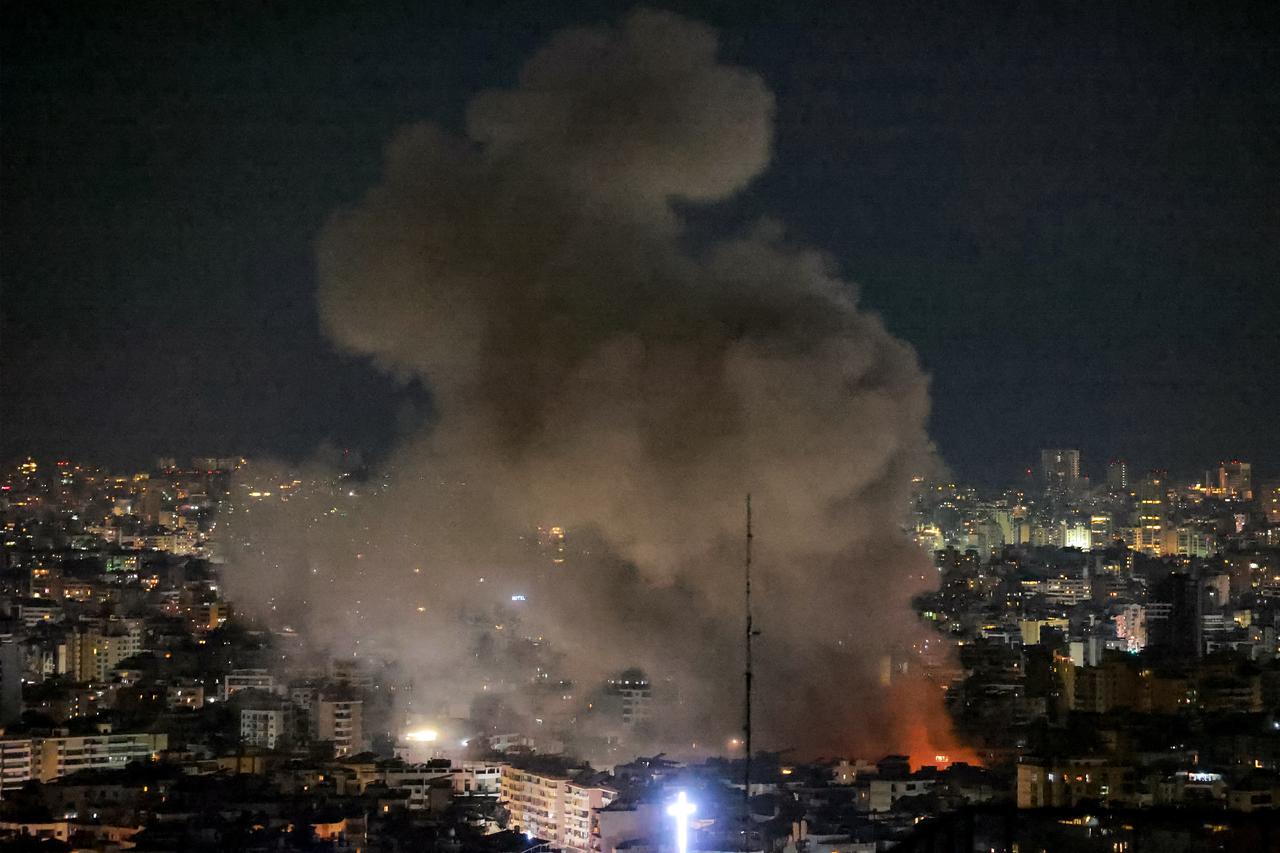
Lebanon’s President Joseph Aoun issued a statement condemning what he described as “Israeli aggression” and a “flagrant violation” of the November 27 ceasefire, particularly “on the eve of a sacred religious festival,” referring to the Eid al-Adha. He added that the attacks were “irrefutable proof of the aggressor’s refusal... of a just peace in our region.”
Despite the ceasefire agreement, which aimed to end hostilities following a major round of fighting, Israeli airstrikes have continued almost daily in southern and eastern Lebanon.
Under the terms of the agreement, Hezbollah fighters were required to withdraw north of the Litani River—approximately 30 kilometers from the Israeli border—and dismantle their military posts to the south. Israel, in turn, was to pull back all its forces from Lebanese territory. However, the Israeli army has maintained a presence in 5 positions along the frontier, which it considers to be of strategic importance.
Lebanese authorities report nearly 3,000 Israeli violations of the truce, with at least 208 people killed and over 500 injured since the agreement took effect.